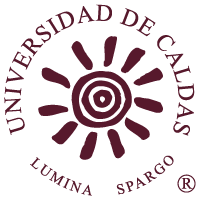Mostrar el registro sencillo del ítem
The Impact of TBI on Intermediate Students´ Writing Skill in Online Classes at a Private Institute in Cartagena De Indias
| dc.contributor.advisor | Novozhenina, Alexandra | |
| dc.contributor.author | Garcia, Adriana | |
| dc.date.accessioned | 2021-08-24T19:41:15Z | |
| dc.date.available | 2021-08-24T19:41:15Z | |
| dc.date.issued | 2021-08-20 | |
| dc.identifier.uri | https://repositorio.ucaldas.edu.co/handle/ucaldas/17037 | |
| dc.description | Ilustraciones, gráficas, fotografías | spa |
| dc.description.abstract | Spa: Este proyecto de investigación cualitativa tiene como objetivo determinar el impacto que tienen las instrucciones basadas en tareas sobre la habilidad de escritura de 15 estudiantes de nivel intermedio en clases virtuales en una institución de inglés en Cartagena. Un diario, un cuestionario y lista de verificación fueron usados como instrumentos para recolectar información durante la etapa diagnostica. Durante etapa de acción, seis talleres fueron implementados, cada uno con una estrategia de escritura diferente: red de ideas, editar en parejas, formulación de preguntas para revisar escritura, revisar y editar, utilizar plantillas y reorganizar ideas. En esta etapa, los mismos instrumentos fueron usados para recolectar la información requerida a ser analizada y dar una posible respuesta a la pregunta de investigación. La intervención ayudó a los estudiantes a mejorar su habilidad de escritura, aprender nuevo vocabulario, usar las tecnologías de la información y la comunicación, y a un uso positivo de las estrategias de escritura, además de generar un impacto positivo en su aprendizaje no solo en escritura sino también en otras habilidades. | spa |
| dc.description.abstract | Eng: This qualitative research project aims to determine the impact that Task-Based Instruction (TBI) had on fifteen Intermediate English students´ writing skill in online classes at a private English institute in Cartagena. A journal, a questionnaire and a checklist were used as instruments to collect relevant information during the diagnostic stage. During the action stage, six workshops were implemented, each one with a different writing strategy: webbing, peer-editing, asking questions to revise writing, revising and editing, using templates, and reorganizing ideas. At this stage, the same instruments were used to measure the impact of the strategy and to give an answer to the research question. The intervention helped them to improve their writing, learn new vocabulary, and use ICT tools and writing strategies thus having a positive impact on their learning process not only in writing but also in other skills. | eng |
| dc.description.tableofcontents | Abstract/Introduction/. Research problem / 1.1. Rationale / 1.2 Setting and context/ 1.3 Statement of the problem / 1.4 Research question and objectives/ 1.4.1 Research question / 1.4.2 Objectives/ 2. Literature Review/ 2.1. Theoretical framework/ 2.1.1. Task-based instruction / 2.1.1.1. Task / 2.1.2. Planning TBI lessons/ 2.1.2. Motivation/ 2.1.3. TBI and writing/ 2.1.4. TBI and online clases/ 2.2. Writing skill/ 2.1.1. Writing strategies/ 2.2.2. Feedback on writing / 2.2.3. Vocabulary/ 4 TBI ON STUDENTS´ WRITING SKILL IN ONLINE CLASSES 2.3. ICTs/ 2.3.1. Zoom/ 2.3.2. Padlet, Mentimeter, Google Drive/ 2.4. Related studies/ 3. Methodological Design/ 3.1 Research approach and type of study / 3.2. Participants/ 3.3. Instruments and data collection procedures in diagnostic and actionevaluations stages/ 4. Stages of the study. / 4.1. Diagnostic stage/ 4.2. Instructional design / 4.3. Action stage/ 4.4. Evaluation stage / 5. Findings/6. Conclusions/ References/ List of appendices/ Appendix A/ Appendix B / Appendix C/ Appendix D/ Appendix E / 5 TBI ON STUDENTS´ WRITING SKILL IN ONLINE CLASSES Appendix F / Appendix G/ Appendix H/ Appendix I / Appendix J/ Appendix K/ Appendix L / Appendix M . | eng |
| dc.format.mimetype | application/pdf | spa |
| dc.language.iso | eng | spa |
| dc.language.iso | spa | spa |
| dc.title | The Impact of TBI on Intermediate Students´ Writing Skill in Online Classes at a Private Institute in Cartagena De Indias | eng |
| dc.type | Trabajo de grado - Maestría | spa |
| dc.description.degreelevel | Maestría | spa |
| dc.description.notes | Esta investigación fue enviada a una revista para su publicación y está a la espera de su publicación. | eng |
| dc.identifier.instname | Universidad de Caldas | spa |
| dc.identifier.reponame | Repositorio institucional Universidad de Caldas | spa |
| dc.identifier.repourl | https://repositorio.ucaldas.edu.co/ | spa |
| dc.publisher.faculty | Facultad de Artes y Humanidades | spa |
| dc.publisher.place | Cartagena | spa |
| dc.relation.references | Alvira, R. (2016). The impact of oral and written feedback on EFL writers with the use of screencasts. PROFILE Issues in Teachers' Professional Development, 18(2), 79-92. http://dx.doi.org/10.15446/profile.v18n2.53397 . | spa |
| dc.relation.references | Appel, C., & Gilabert, R. (2002). Motivation and task performance in a task-based web-based tandem project. ReCALL, 14(01). doi:10.1017/s0958344002000319 | spa |
| dc.relation.references | Authar, N. & Afandi, M. (2020). The Use of Task-Based Language Instruction through Online Video Teleconference Application in Teaching Speaking Skill on English Department Students of Nahdlatul Ulama University. Exposure: Jurnal Pendidikan Bahasa Inggris, 9(2), 286-298. | spa |
| dc.relation.references | Baber, H. (2020). Determinants of Students’ Perceived Learning Outcome and Satisfaction in Online Learning during the Pandemic of COVID19. Journal of Education and e-Learning Research, 7(3): 285-292. https://doi.org/10.20448/journal.509.2020.73.285.292 | spa |
| dc.relation.references | Briesmaster, M., & Etchegaray, P. (2017). Coherence and cohesion in EFL students’ writing production: The impact of a metacognition-based intervention. Íkala, Revista de Lenguaje y Cultura, 22(2), 183–202. doi: 10.17533/udea.ikala.v22n02a02. | spa |
| dc.relation.references | British council (2018). What is Aptis? Retrieved from www.britishcouncil.org | spa |
| dc.relation.references | Bygate, M. Skehan, P. Swain, M. (2001). Effects of task repetition on the structure and control of language. In Researching Pedagogic Tasks: Second Language Learning, Teaching and Testing Longman | spa |
| dc.relation.references | Castillo, C., Insuasty, E, & Jaime, M. (2017). The Impact of Authentic Materials and Tasks on Students’ Communicative Competence at a Colombian Language School. Profile: Issues in Teachers’ Professional Development, 19(1), 89-104. https://doi.org/10.15446/profile.v19n1.56763. | spa |
| dc.relation.references | Córdoba, E. (2016). Implementing Task-Based Language Teaching to Integrate Language Skills in an EFL Program at a Colombian University. Profile: Issues in Teachers’ Professional Development, 18(2), 13-27. https://doi.org/10.15446/profile.v18n2.49754. | spa |
| dc.relation.references | Creswell, J. (2014). Research design: qualitative, quantitative, and mixed methods approaches. 4th ed. Thousand Oaks, California: SAGE Publications | spa |
| dc.relation.references | East, M. (2017). 10. “If It Is All About Tasks, Will They Learn Anything?” Teachers’ Perspectives on Grammar Instruction in the Task-Oriented Classroom. Recent Perspectives on Task-Based Language Learning and Teaching. doi:10.1515/9781501503399-011 | spa |
| dc.relation.references | Edugains. (2012). Think Literacy: Cross Curricular Approaches, Grades 7-12. 94-153. Ontario. | spa |
| dc.relation.references | Egbert, J. (2020). The new normal?: A pandemic of task engagement in language learning. Foreign Language Annals.doi:10.1111/flan.12452 | spa |
| dc.relation.references | Ellis, R. (2003). Designing a Task-Based Syllabus. RELC Journal, 34(1), 64–81. | spa |
| dc.relation.references | Ellis, R. (2019) Task-Based Syllabus Design. In Task-Based Language Teaching, 179–207. doi:10.1017/9781108643689.012. | spa |
| dc.relation.references | Fadhilawati, D., Laksmita D., & Mansur, M. (2020). Using Padlet to Increase the Students’ Procedure Text Writing Achievement. Exposure: Jurnal Pendidikan Bahasa Inggris, 9(2), 158-172 | spa |
| dc.relation.references | Ferreira, F., Salinas, G., & Morales, S. (2014). Using a Task-Based Approach for Supporting a Blended Learning Model for English as a Foreign Language. International Journal of Computer-Assisted Language Learning and Teaching, 4(1), 44–62. doi:10.4018/ijcallt.2014010103 | spa |
| dc.relation.references | Flower, L., & Hayes. R. (1981). A cognitive process theory of writing. College Composition and Communication, 32(4), 365-387. | spa |
| dc.relation.references | Friedlander, A. (1990). Composing in English: Effects of a first language on writing in English in a second language. In Kroll, B. (Ed.), Second language writing (pp. 109-125). New York: Cambridge University Press. | spa |
| dc.relation.references | Harmer, J. (2004). How to teach writing. Harlow, UK: Pearson Education | spa |
| dc.relation.references | Hartshorn, K., & McMurry, B. (2020). The Effects of the COVID-19 Pandemic on ESL. Learners and TESOL Practitioners in the United States. International Journal of TESOL Studies, 2(2), 140-157. | spa |
| dc.relation.references | Hashemi, M., Azizinezhad, M. & Darvish, S. (2012). Using task-based language teaching, learning practically in English classes. Procedia-Social and Behavioral Sciences, 31, 526- 529. | spa |
| dc.relation.references | Hinkel, E. (2004) Teaching Academic ESL Writing. Practical Techniques in Vocabulary and Grammar. Lawrence Erlbaum Associates. | spa |
| dc.relation.references | Hyland, K. (2003). Writing and Teaching Writing. In Second Language Writing (pp. 1-30). Cambridge: Cambridge University Press. doi:10.1017/CBO9780511667251.00 | spa |
| dc.relation.references | Kafipour, R., Mahmoudi, E., & Khojasteh, L. (2018). The effect of task-based language teaching on analytic writing in EFL classrooms. Cogent Education, 5(1), 1– 16.doi:10.1080/2331186x.2018.1496627. | spa |
| dc.relation.references | Kakh, S., & Mansor, W. (2014). Task-based Writing Instruction to Enhance Graduate Students’ Audience Awareness. Procedia - Social and Behavioral Sciences, 118, 206–213.doi: 10.1016/j.sbspro.2014.02.028 | spa |
| dc.relation.references | Kieft, M., Rijlaarsdam, G., Galbraith, D., & Van den Bergh, H. (2007). The effects of adapting a writing course to students' writing strategies. British Journal of Educational Psychology, 77(3), 565–578. https://doi.org/10.1348/096317906X120231 | spa |
| dc.relation.references | Ko, S., & Rossen, S. (2017). Teaching online: A practical guide. Taylor & Francis. | spa |
| dc.relation.references | Korman, C. (2020). Zoom for Teachers 2020: A Complete Guide to Learn Zoom Cloud Meetings for Video Webinars, Live Stream, Conference and Classroom Management. Kindle Edition. | spa |
| dc.relation.references | Lassoued, Z., Alhendawi, M., & Bashitialshaaer, R. (2020). An Exploratory Study of the Obstacles for Achieving Quality in Distance Learning during the COVID-19 Pandemic. Education Sciences, 10(9), 232.doi:10.3390/educsci10090232 | spa |
| dc.relation.references | Liefooghe, B., De Houwer, J., & Wenke, D. (2013). Instruction-based response activation depends on task preparation. Psychonomic Bulletin & Review, 20(3), 481–487. doi:10.3758/s13423-013-0374-7. | spa |
| dc.relation.references | Long, M. (2015). Second language acquisition and task-based language teaching. West Sussex, UK: Wiley Blackwell. | spa |
| dc.relation.references | Mason, J. (2012). Qualitative researching. Sage Publications, London. | spa |
| dc.relation.references | Mayora, C. (2009). Using YouTube to encourage authentic writing in the EFL classrooms. TESL Reporter, 42(1), 1–12. | spa |
| dc.relation.references | Miao, H. (2014). The Task-based Teaching of Writing to Big Classes in Chinese EFL Setting. English Language Teaching, 7(3). doi:10.5539/elt.v7n3p63. | spa |
| dc.relation.references | Nunan, D. (2004). Task-based language teaching. Cambridge, uk: Cambridge University Press. http://dx.doi.org/10.1017/CBO9780511667336. | spa |
| dc.relation.references | Olave, G., Rojas, L. & Cisneros, M. (2013). Leer y escribir para no desertar en la universidad. Folios, (38),45-59. Retrieved January 05, 2021, from http://www.scielo.org.co/scielo.php?script=sci_arttext&pid=S012348702013000200004 &lng=en&tlng=es | spa |
| dc.relation.references | Prabhu, N. S. (1987). Second Language Pedagogy. Oxford: Oxford University Press. | spa |
| dc.relation.references | Quesada, A. (2005). Web-Based Learning (WBL): A challenge for foreign language teachers. Revista Electrónica "Actualidades Investigativas en Educación", 5(2),1-25 | spa |
| dc.relation.references | Richards, J., & Rodgers, T. (2001). Approaches and Methods in Language Teaching (2nd ed., Cambridge Language Teaching Library). Cambridge: Cambridge University Press. doi:10.1017/CBO9780511667305 | spa |
| dc.relation.references | Richards, J., & Rodgers, T. (2014). Approaches and Methods in Language Teaching (3rd ed., Cambridge Language Teaching Library). Cambridge: Cambridge University Press. doi:10.1017/CBO9780511667305 | spa |
| dc.relation.references | Rinekso, A. B., & Muslim , A. B. (2020). Synchronous online discussion: teaching English in higher education amidst the covid-19 pandemic. JEES (Journal of English Educators Society), 5(2), 155-162. https://doi.org/10.21070/jees.v5i2.646 | spa |
| dc.relation.references | Rodriguez M. & Rodríguez J., (2010). Task-Based Language Learning: Old Approach, New Style. A New Lesson to Learn. Profile: Issues in Teachers’ Professional Development, 12(2), 165-178. Retrieved from https://revistas.unal.edu.co/index.php/profile/article/view/17691. | spa |
| dc.relation.references | Romeo, G. (2008). Information and communication technologies in education. Rethinking Education with ICT: New directions for effective practices. Rotterdam, Sense publishers. | spa |
| dc.relation.references | Rezaei, S., Mozaffari, F., & Hatef, A. (2011). Corrective feedback in SLA: Classroom practice and future directions. International Journal of English Linguistics, 1(1), 21. https://doi.org/10.5539/ijel.v1n1p21. | spa |
| dc.relation.references | Shin, S. (2006). Learning to teach writing through tutoring and journal writing. Teachers and Teaching, 12(3), 325–345.doi:10.1080/13450600500467621 | spa |
| dc.relation.references | Schmitt, N. (2000). Vocabulary in language teaching. Cambridge: Cambridge University Press | spa |
| dc.relation.references | Skehan, P. (2003). Task-based instruction. Language Teaching, 36(1), 1–14. doi:10.1017/s026144480200188x | spa |
| dc.relation.references | Slavkov, N. (2015). Sociocultural Theory, the L2 Writing Process, and Google Drive: Strange Bedfellows?. TESL Canada Journal, 32(2), 80-94. | spa |
| dc.relation.references | Sutarto, S., Sari, P., & Fathurrochman, I. (2020). Teacher strategies in online learning to increase students’ interest in learning during COVID-19 pandemic. Jurnal Konseling dan Pendidikan, 8(3), 129-137. Sysoyev, P. V., & Evstigneev, M. N. (2014). Foreign Language Teachers’ Competency and Competence in Using Information and Communication Technologies. Procedia - Social and Behavioral Sciences, 154, 82–86. doi: 10.1016/j.sbspro.2014.10.116. | spa |
| dc.relation.references | Vallely, K., & Gibson, P. (2018). Engaging students on their devices with Mentimeter. Compass Journal of Learning and Teaching, 11(2). doi: https://doi.org/10.21100/compass.v11i2.843 | spa |
| dc.relation.references | Westmacott, A. (2017). Direct vs. Indirect Written Corrective Feedback: Student Perceptions. Íkala, 22(1), 17-32. https://doi.org/10.17533/udea.ikala.v22n01a02. | spa |
| dc.relation.references | Widdowson, H. G. (1978). Teaching language as communication. Oxford, UK: Oxford University Press | spa |
| dc.relation.references | Willis, D., & Willis, J. (2007). Doing Task-Based Teaching. Oxford: Oxford University Press. | spa |
| dc.relation.references | Willis, J. (1996). A Framework for Task-Based Learning. Harlow: Longman | spa |
| dc.relation.references | Yim, S., Zheng, B., & Warschauer, M. (2018). Feedback and revision in cloud-based writing: Variations across feedback source and task type. Writing & Pedagogy, 9(3), 517–553. doi:10.1558/wap.32209. | spa |
| dc.relation.references | Zarco, S. & Restan, H. (2017) La inversión extranjera directa en el sector hotelero y su impacto sobre el crecimiento económico de Cartagena. Repositorio UdC. http://hdl.handle.net/11227/5677. | spa |
| dc.rights.accessrights | info:eu-repo/semantics/closedAccess | spa |
| dc.subject.lemb | Aprendizaje | |
| dc.subject.lemb | Pedagogía | |
| dc.subject.lemb | Tecnología | |
| dc.subject.proposal | Online tools | eng |
| dc.subject.proposal | TBI | eng |
| dc.subject.proposal | Writing strategies | eng |
| dc.subject.proposal | Motivation | eng |
| dc.type.coar | http://purl.org/coar/resource_type/c_bdcc | spa |
| dc.type.content | Text | spa |
| dc.type.driver | info:eu-repo/semantics/masterThesis | spa |
| dc.type.redcol | https://purl.org/redcol/resource_type/TM | spa |
| dc.type.version | info:eu-repo/semantics/publishedVersion | spa |
| oaire.version | http://purl.org/coar/version/c_ab4af688f83e57aa | spa |
| oaire.accessrights | http://purl.org/coar/access_right/c_14cb | spa |
| dc.description.degreename | Magister en Didáctica del Inglés - Cartagena | spa |
| dc.publisher.program | Maestría en Didáctica del Inglés - Cartagena | spa |







